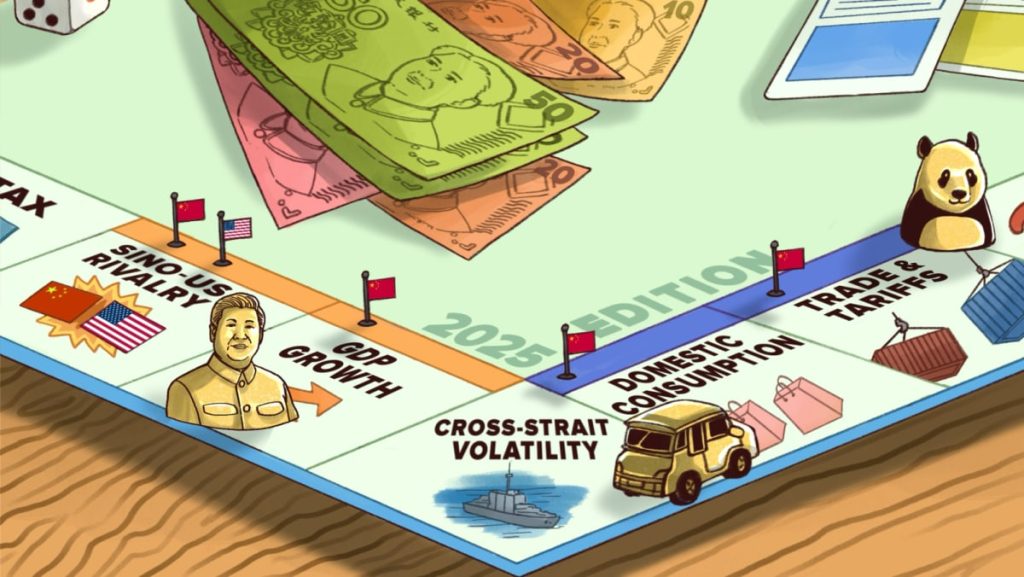Shifting Sands in the Taiwan Strait: Uncertainty and Self-Reliance in the Face of Geopolitical Tensions
The Taiwan Strait, a narrow waterway separating the island of Taiwan from mainland China, has become a focal point of escalating geopolitical tensions. The long-standing, unresolved status of Taiwan, which Beijing claims as its own territory despite the island’s self-governance, has been further complicated by a confluence of factors, including the transactional diplomacy of former US President Donald Trump, Taiwan’s growing emphasis on self-reliance, and the increasingly assertive posture of Chinese President Xi Jinping. These intersecting dynamics have created a volatile environment fraught with uncertainty and the potential for miscalculation.
Trump’s "America First" policy and his questioning of the US commitment to defend Taiwan sowed doubt about the reliability of American support, a cornerstone of Taiwanese security for decades. Trump’s suggestion that Taiwan should "pay" for US protection further unsettled the relationship and prompted Taiwan to re-evaluate its defense strategy. This shift has led to a growing consensus within Taiwan that over-reliance on the US is unsustainable and that the island must prioritize self-sufficiency in its defense capabilities. This strategic recalibration, while potentially de-escalatory in the short term, introduces new complexities to the cross-strait equation.
While some analysts see Taiwan’s move toward self-reliance as a potential catalyst for reduced tensions, allowing Beijing to pursue a more structured approach to cross-strait relations, others remain skeptical. The election of Taiwanese President William Lai Ching-te, a member of the Democratic Progressive Party (DPP), which Beijing views as pro-independence, has further strained relations. China’s strong condemnation of Lai, labeling him a "separatist," underscores the deep distrust between the two sides and casts a shadow over the prospects for meaningful dialogue. The lack of progress in cross-strait relations, even at the people-to-people level, further reinforces this pessimism. The ongoing trade restrictions, diplomatic isolation tactics employed by Beijing against Taiwan, and the increased military activities around the island all point to a hardening of positions and an increased risk of conflict.
Adding to the complexity is China’s increasingly opaque military posture. A large-scale, unannounced naval exercise near Taiwan in December 2022 underscored this growing concern. The lack of transparency surrounding China’s military intentions regarding Taiwan creates an environment ripe for misinterpretation and raises the specter of accidental escalation. The unannounced nature of the exercise suggests a deliberate shift in Beijing’s strategy, opting for a less predictable and potentially more coercive approach. This lack of transparency makes it difficult for the international community to accurately gauge China’s intentions, further exacerbating the already tense situation.
Xi Jinping’s unwavering stance on Taiwan, reiterated in his New Year’s address, further complicates the situation. His resolute declaration that reunification is inevitable and that no one can stop it, coupled with the escalating military activities, sends a clear message to Taiwan and the international community. This firm stance, combined with Xi’s consolidation of power within China, suggests a long-term strategy focused on asserting control over Taiwan, regardless of the potential costs.
Domestically, Xi Jinping’s continued consolidation of power reinforces the expectation of a more assertive and potentially less compromising approach to Taiwan. His unprecedented third term as China’s top leader allows him to pursue his long-term strategic goals without the constraints of term limits. This concentration of power, combined with his stated commitment to reunification, suggests that the Taiwan issue will remain a top priority for Beijing in the years to come. The combination of Xi’s domestic power consolidation and his assertive stance on Taiwan creates a dynamic where miscalculations and escalations become more likely, particularly in the absence of clear communication and confidence-building measures between the two sides. The increasingly complex interplay of domestic politics, evolving defense strategies, and escalating rhetoric surrounding the Taiwan Strait underscores the urgent need for diplomatic efforts to prevent further deterioration of the situation and mitigate the risk of conflict.

